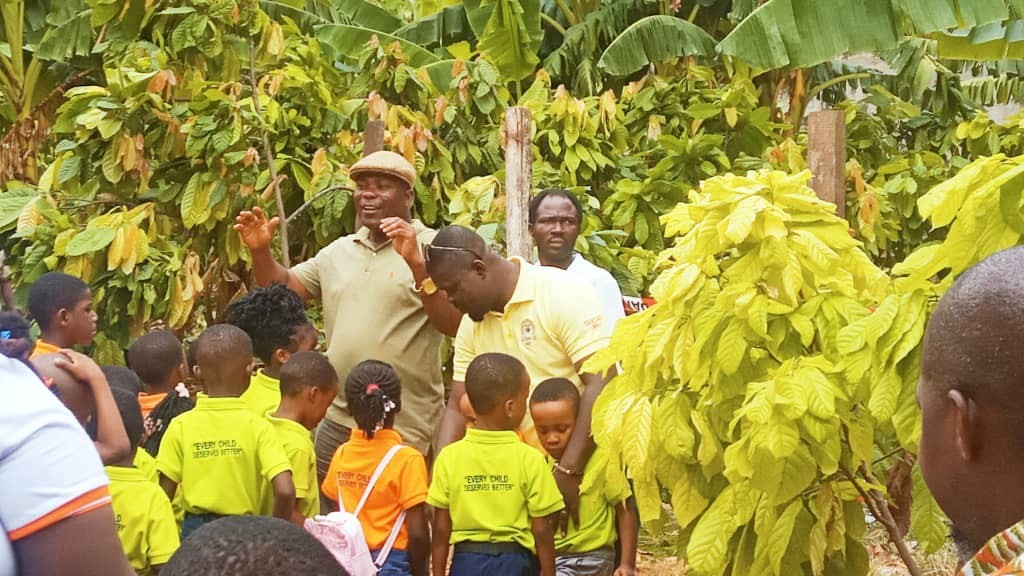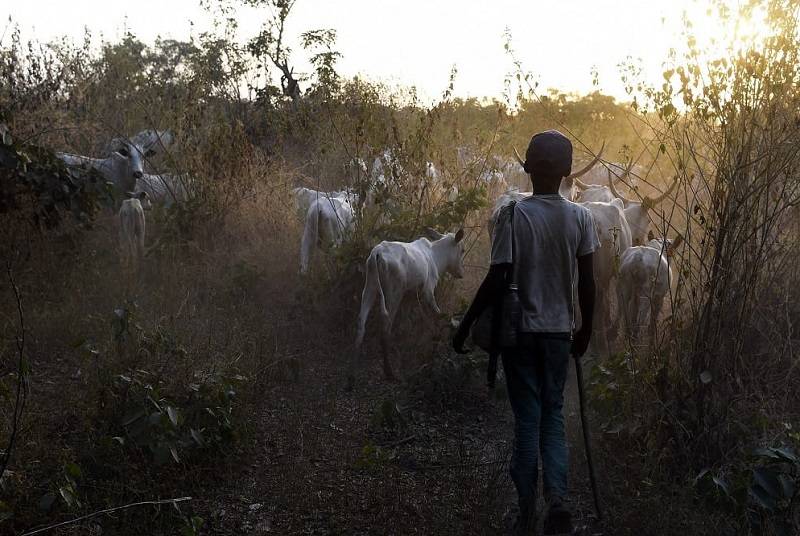
Noami Mansah Anim was just six years old when she died. The little girl had battled asthma for years, her tiny body wracked by the struggle to get air into her lungs. On a cold dawn in 2019 she finally succumbed.
Her mother, Abena Anim, who lives in Elmina, Central Region of Ghana, is still overwhelmed with grief.
“Anytime Naomi got an attack she gasped for breath with tears rolling down her eyes when she feels too weak to cry. Fear gripped me and her father,” Mrs Anim, 42 years old, recalls through her own tears. “We always rushed her to the Elmina Polyclinic where she would be admitted for a day or more depending on how fast she responded to treatment.”
The hardest part for Mrs Anim and her family is the knowledge that her livelihood likely contributed to Naomi’s suffering.
Mrs Anim smokes fish for a living. For long hours every day, including while she was pregnant with Naomi, she works in a hut over racks of fish smoking over charcoal coals. As a child Naomi would be strapped to her mother’s back as she smoked. As she grew older she would play amid the fumes.
Mrs Anim and her family had assumed their daughter’s asthma was caused by rainy weather. As it got worse doctors warned that if she did not stop exposing her child to smoke from her fish smoking business, her condition might get worst. The family didn’t believe it could lead to her death.
“I never thought smoke could cause death like this and this is because I know many children even before I came to reside here, who have never been exposed to such smoke but had asthma,” says Mrs Anim. “I asked myself why the doctors kept saying the smoke emanating from my oven could be the cause of my daughter’s disease.”
Naomi is one of thousands of Ghanaian children exposed to unhealthy levels of smoke from their mothers’ livelihood. Air pollution is a leading killer of children. According to the World Health Organisation (WHO) one in four deaths of children under five could be attributed to unhealthy environments including outdoor air pollution. WHO also estimates that globally, 570,000 children under five die each year from respiratory infections which could be attributed to indoor and outdoor air. WHO also estimates that globally, 570,000 children under five die each year from respiratory infections which could be attributed to indoor and outdoor air pollution, and second hand smoke.
Emissions from firewood produce the most dangerous form of air pollution known as Particulate Matter (PM) 2.5 for the small size of the particles. The particles, made up of a range of toxins, can get into the lungs and blood stream causing a range of major illnesses from stroke to cancer to diabetes.
Adult women in Elmina and other fishing communities are suffering a range of health impacts from fish smoking, including blindness and cancer but children are even more vulnerable.
Dr Seyram Wordui, a pediatric pulmonologist and CEO of babychildandco, a group of child health practitioners in Accra, says exposing children to smoke should not be seen as normal. She says children are more vulnerable to polluted air because their organs are still developing. Prolonged exposure to environmental pollutants including smoke can scar children’s lungs making them more vulnerable to lung illnesses.
“Children do not have the mechanism adults have to repair injury to our bodies and this puts them at the risk of air pollutants,” she says.
Dr Wordui says the airways of young children are smaller and react more to pollutants, putting them at the increased risk of constriction of their airways that obstructs the movement of air into the lungs. Their smaller lungs mean they breathe faster than adults and so take in more polluted air per unit of body weight.
Children are at particular risk when they’re in the womb says Dr Wordui. Exposure to smoke risks a range of health issues including preterm delivery which puts the children at great risk of a range of problems.
“A woman who is pregnant should ensure her baby is born with healthy lungs,” says Dr Wordui. “At all costs they should do what they can to prevent preterm deliveries.”
Mrs Anim says since the demise of her daughter she has stopped smoking fish. She buys already smoked fish and sells to her clients in Kumasi in the Ashanti Region of Ghana. Her income is reduced but she didn’t have a choice.
“I had to make that decision because I now strongly believe how deadly exposure to smoke can be,” says Mrs Anim. “Personally I experience breathlessness sometimes so I don’t want to also get sick and lose my life in the end. I have two more children to fend for.”
Mrs Anim says her grief at Naomi’s death and her role in it remains overwhelming and she believes she will never heal from her loss.
But for many children in Ghana’s fishing communities, parents don’t know the dangers they are exposing their children to. Many say they have no choice either way – fish smoking is the only business they can do to feed their children.
In Elmina many children remain at the risk of contracting chronic respiratory diseases due to frequent exposure to smoke from the traditional ovens their mothers use. Ernestina Baiden, a mother of four children, sits close to her traditional oven filled with wood. Her children sit close to her helping with the sorting and arranging of fish for smoking.
Mrs Baiden carries the youngest among her children on her back. The baby coughs occasionally. Two other children, aged five and seven, have runny noses with watery eyes as the smoke gradually fills their hut. This is their daily routine. Mrs Baiden says her children join her to smoke the fish when they close from school and during weekends. She says the children sometimes end up unwell but doesn’t believe it is caused by the smoke.
“They cough and complain of headache and usually have runny noses but these symptoms do not last for long so we are not bothered,” Mrs Baiden says. “This is normal. We all experienced it growing up.”
Those beliefs pain Dr Wordui. There are many ways to make fish smoking safer. She advises fishmongers to carry out their economic activity in a safer manner – wearing masks themselves, staying away from the smoke as much as possible, especially when pregnant, and keeping the children away.
Dr Wordui also urges the Environmental Protection Agency to collaborate with local authorities and NGOs to focus on training fishmongers on using safer fish smoking methods or employing technology to make the fish smoking process safer.
Dr Antwi-Boasiako Amoah, Director of Climate Vulnerabilities and Adaptation at the Environmental Protection Agency, told the Ghanaian Times in an interview that he agrees awareness creation about the health implications of exposure to smoke would go a long way to help save lives. But he said the EPA lacks adequate funds for such initiatives. He urged the Ghana Health Service and district assemblies to focus on implementing measures to address air pollution in general and pollution from fish smoking in particular.
For now children of fish smokers continue to suffer and die unnecessarily from an invisible killer that they don’t even know is stalking them.
BY RAISSA SAMBOU
****
This story was in collaboration with New Narratives. Funding was provided by the Clean Air Fund. The funder had no say in the content of the story.
The post Fish smoking endangering lives of many Ghanaian children appeared first on Ghanaian Times.
Read Full Story



























Facebook
Twitter
Pinterest
Instagram
Google+
YouTube
LinkedIn
RSS